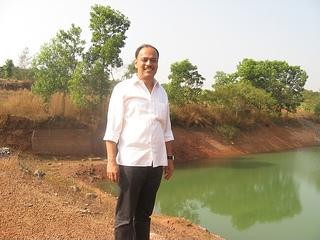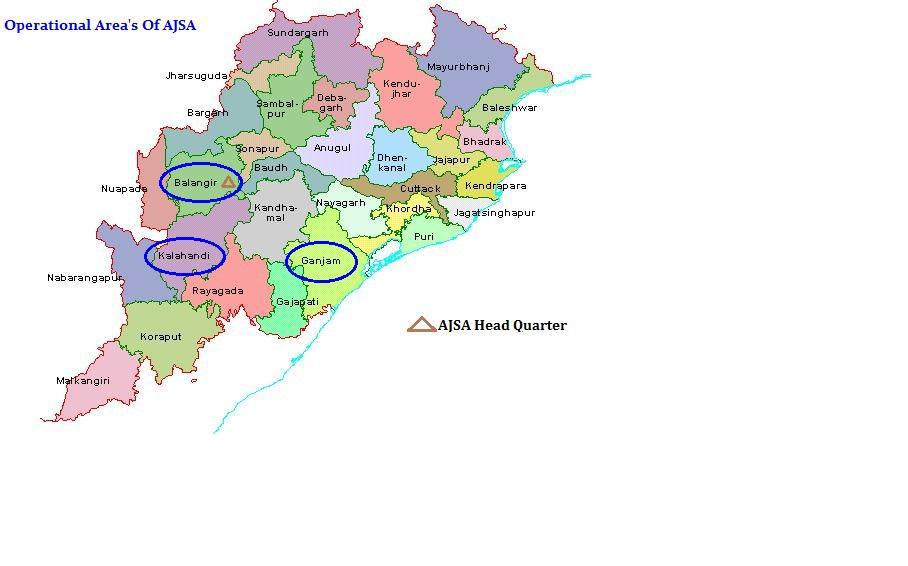/sub-categories/success-stories-and-case-studies
Success Stories and Case Studies
Residents of Khandwa in Madhya Pradesh, resist public private partnership in their water supply project- A press release by Manthan Adhyayan Kendra
Posted on 20 Mar, 2013 09:58 AMThe bad track record of the public sector to provide water has increasingly led to private sector participation in water supply system. The proponents of privatization state that private sector would increase efficiency, bring adequate finance and help build the infrastructure that is required to run the utilities properly in an effective manner.

Reviving a lake transforms 120 acres of barren land into a self-sufficient organic farm: The story of Rajesh Naik and Oddoor farms, Mangalore, Karnataka
Posted on 05 Mar, 2013 03:39 PMA visit to Oddoor farms near Mangalore, Karnataka, provides an inspiring example of the efforts made by Rajesh Naik ji to transform 120 acres of barren land into a lush green farm through his persistent efforts of creating a two acre and fifty feet deep lake, which has not only transformed the surrounding area, but has also helped in improving the water table in the surrounding village, besides helping in the development of a self sufficient organic farm and a dairy.
Oddoor farms, around 25 kilometres away from Mangalore city is a great example of a very successful effort made by Rajesh Naik ji who has transformed 120 acres of barren land into a self sufficient organic farm by developing a 50 feet lake on two acres of land. The journey has been a long one and not without its share of challenges, but persistence and constant optimism and hard work to overcome challenges has reaped results in the last twenty years, informs Rajesh Naik ji.

Rajesh Naik ji near the lake he has developed at the Oddoor farms near Mangalore
An assessment of the impact of MGNREGA on rural water security : Talks from the IWMI-Tata Annual Partners' Meet held at Anand in November 2012
Posted on 26 Feb, 2013 04:04 PMA month ago, India Water Portal tried to make sense of the numbers involved in India's flagship programme. Two-thirds of the works in progress in the current financial year (2012-13) were devoted to works linked with water - split nearly equally between water for domestic use and water for livelihoods.
An insight into the management of forest resources by tribal communities in Kargata and Bhagwanpur villages in Vidarbha, Maharashtra
Posted on 25 Feb, 2013 10:03 PMThe Forest Conservation Act and Forest Rights Act have acquired significant attention ever since they were passed in 1980 and 2006. While the former restricts the alteration brought to the forestland, the latter extends the rights of forest dwellers to use its resources.
42 water bodies restored in Berhampur, Odisha through community mapping
Posted on 21 Feb, 2013 11:26 PMAuthor: Dr. Piyush Ranjan Rout
In an urbanisation dominated world, the restoration water bodies in Berhampur town may remain unknown to many, but it is igniting many around the region to take care of water bodies in their respective cities & towns. The story below will let you know how water bodies were restored in Berhampur, Odisha.
Enhancing livelihoods through diversion-based irrigation (DBI) in Odisha: An AJSA initiative
Posted on 14 Feb, 2013 10:58 PMCourtesy: Anchalika Jana Seva Anusthan (AJSA), Odisha

A map showing AJSA's area of operation in Odisha
To combat water scarcity and socio-economic deprivation through the effective use of water resources in Dudkarenga and Barbandha villages in Odisha, AJSA launched a Diversion Based Irrigation(DBI) initiative in kalahandi District of Odisha,to bring sustainable livelihood and address food security and climate justice in M.Rampur block of Kalahandi.
Now the DBI systems are providing irrigation to the earlier unirrigated area’s and has become the main source of livelihood to generation of people who have had land. It is also providing wage employment to the landless also.
Videos: Resurgence of the ahar pynes - Magadh Jal Jamaat helps revive 2000-year old flood water harvesting systems in Gaya, Bihar
Posted on 13 Feb, 2013 10:34 AMMagadh Jal Jamaat, a loose network of progressive individuals in Gaya has been successfully able to revive over a dozen abandoned water sources and have instilled in people the need to create, clean up and conserve several lakes and ponds in the region.
Case studies on amelioration of water scarcity in rural Gujarat by Sir Ratan Tata Trust and the Navajbai Ratan Tata Trust
Posted on 11 Feb, 2013 05:03 PMThis document is by journalist Suhit Kelkar on behalf of Sir Ratan Tata Trust and the Navajbai Ratan Tata Trust. It is a collection of case studies on ways to ameliorate water scarcity in rural Gujarat.
A toilet that loves the environment: A film by the Himalaya Seva Sangh highlighting Uttarakhand's experience with eco-san toilets
Posted on 03 Feb, 2013 03:43 PM
The Himalayas are inhabited by 40 million people, most of whom are dependent on agriculture and animal husbandry. The prevalent water scarcity also means a lack of water for sanitation. In this case, both open defecation and conventional sewerage pose a health risk. Conventional toilets not only consume a lot of water, but the effluent also pollutes groundwater.
Meghal river revival in Junagadh, Saurashtra, Gujarat: A documentary
Posted on 29 Jan, 2013 10:59 PM